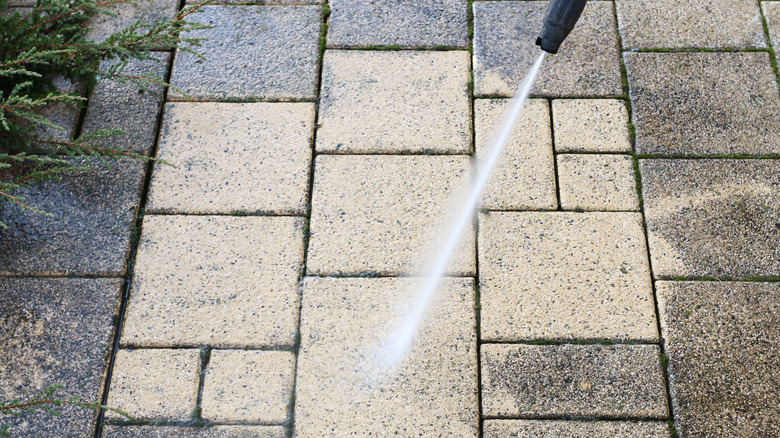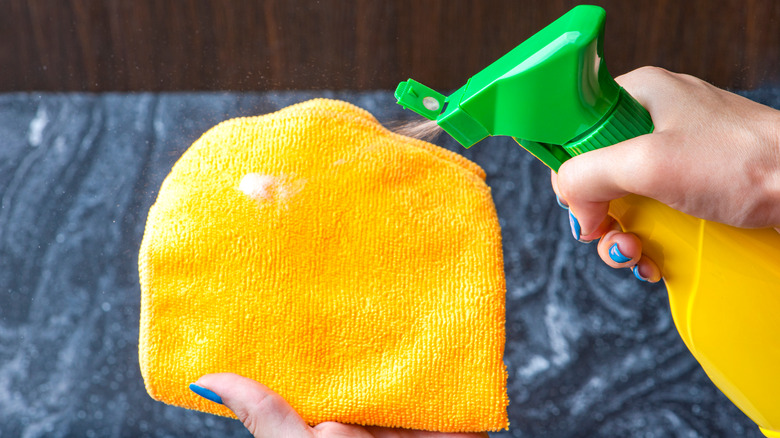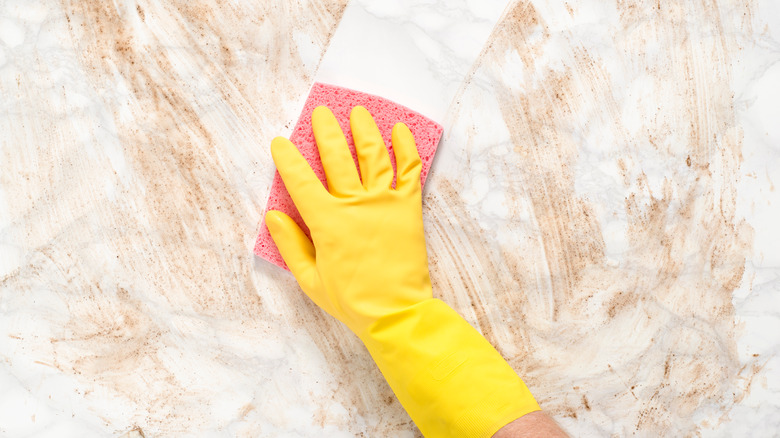Types Of Stone That You Cannot Clean With Water
Solid stone surfaces are not only beautiful but also durable, especially when you provide the right maintenance. In some cases, that means not using water (or large amounts of water by itself) when cleaning stone flooring, paving, countertops, or walls. Some materials may not appear to be porous, but in reality, they are, which means the water would make its way under the surface and do some serious damage to the structural integrity. When cleaning limestone, brick, stucco walls, and sandstone, it's better to avoid the bucket of water or the pressure washer. Likewise, water isn't much of a friend to marble, granite, flagstone, or travertine.
Considering how absorbent and porous these materials are, you can't simply mop, spray, or rinse them off because water can negatively affect the finish of these materials. Plus, with the possibility of expansion and contraction from water exposure, the likelihood of cracking increases. Moreover, if water stays trapped under the surface, then fungus and algae may develop, or in the case of outdoor surfaces, moss will take over. Worse yet, if you're dealing with hard water, then filmy spots will form due to the mineral deposits. Fortunately, there are several safe alternatives for cleaning stone surfaces, which preserve color and texture and extend the material's life.
Alternatives to using water for daily cleaning
So how can you get a really clean stone surface without using water? The secret is consistency — in the case of interior floors or patio paving, you'll need to vacuum often, sweep with a soft-bristled broom, or use a dust mop to remove fine particles, dirt, and dust. If you need to do a deeper cleaning, you might look for a water-based cleaner that's specifically made for stone surfaces. Some brands might call for you to dilute them in warm water and use a mop, but the most important thing to keep in mind is to refrain from soaking the mop and consequently the floor. Plus, mopping should not be done very often so as to protect the surface.
For stone countertops, you might consider keeping a soft brush or microfiber towel to use only on these surfaces. Likewise, you can use a soft brush attachment for your vacuum just for the countertops. Just like the floors, keeping the surface as dust free as possible helps immensely with its appearance and longevity. Remember to avoid spraying with water or using a soaking wet sponge.
Avoiding water when cleaning stains
Staining will undoubtedly occur at some point on a natural stone surface, but you should still avoid the spray bottle of water, even if it's mixed with bleach, vinegar, or lemon juice. All of these substances can damage the surface, and in the case of vinegar and lemon juice, the acidic content is too high to use on travertine, marble, and limestone. The first and most important step, however, is to wipe all spills right away to try to avoid staining to begin with.
If the spill still leaves a mark behind, then you should opt for a cleaner with no acid (or at least a low acidic level). Washing soda is safe as long as you use a soft cloth to wipe and completely dry the surface. For tough stains, you may need to allow the cleaning solution (whether a washing soda or a surface-specific product) to sit for 15 minutes and then gently scrub the area with a soft-bristled brush or a soft sponge and then rinse with water. In this situation, the key is to work quickly and then completely dry the surface.


